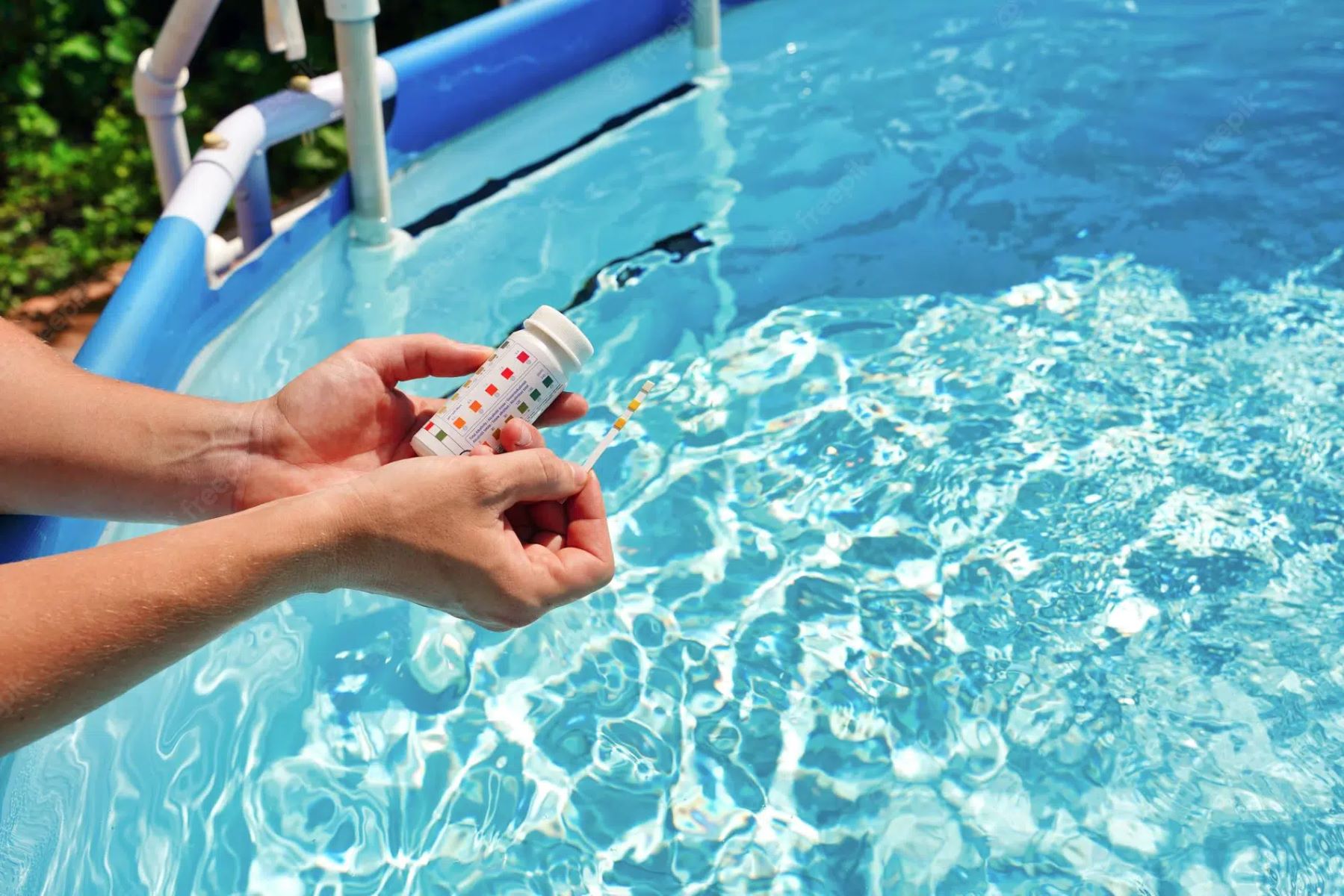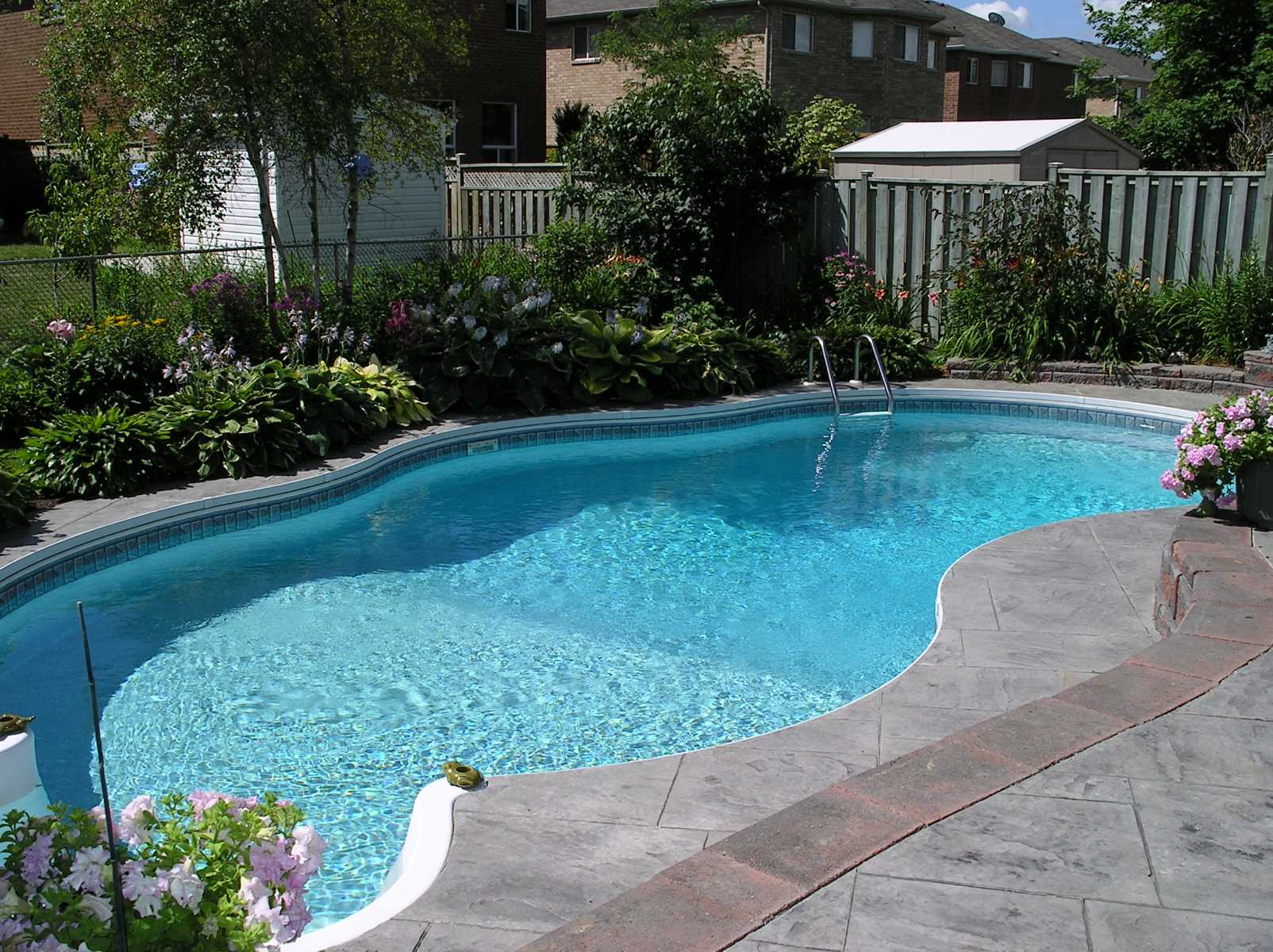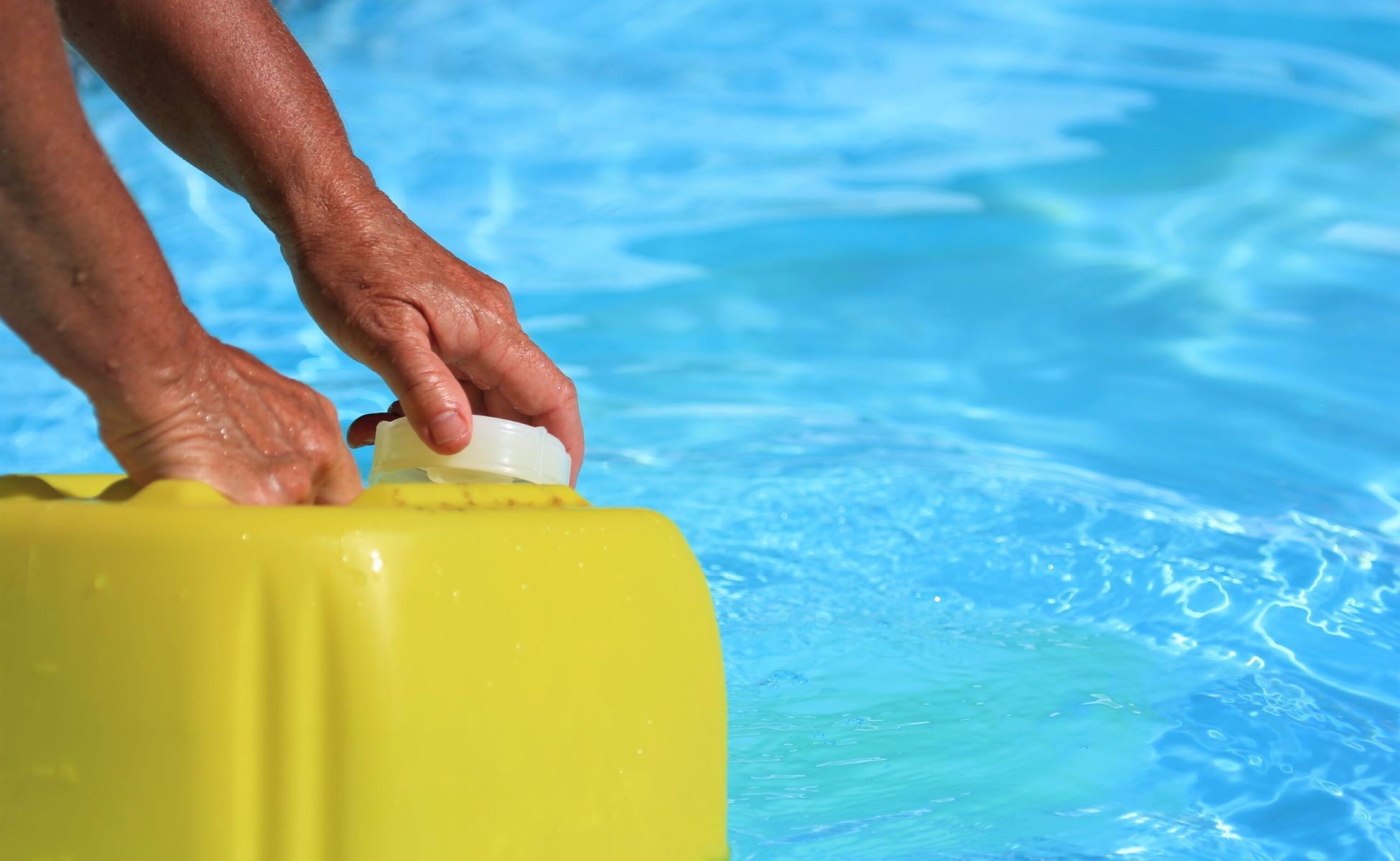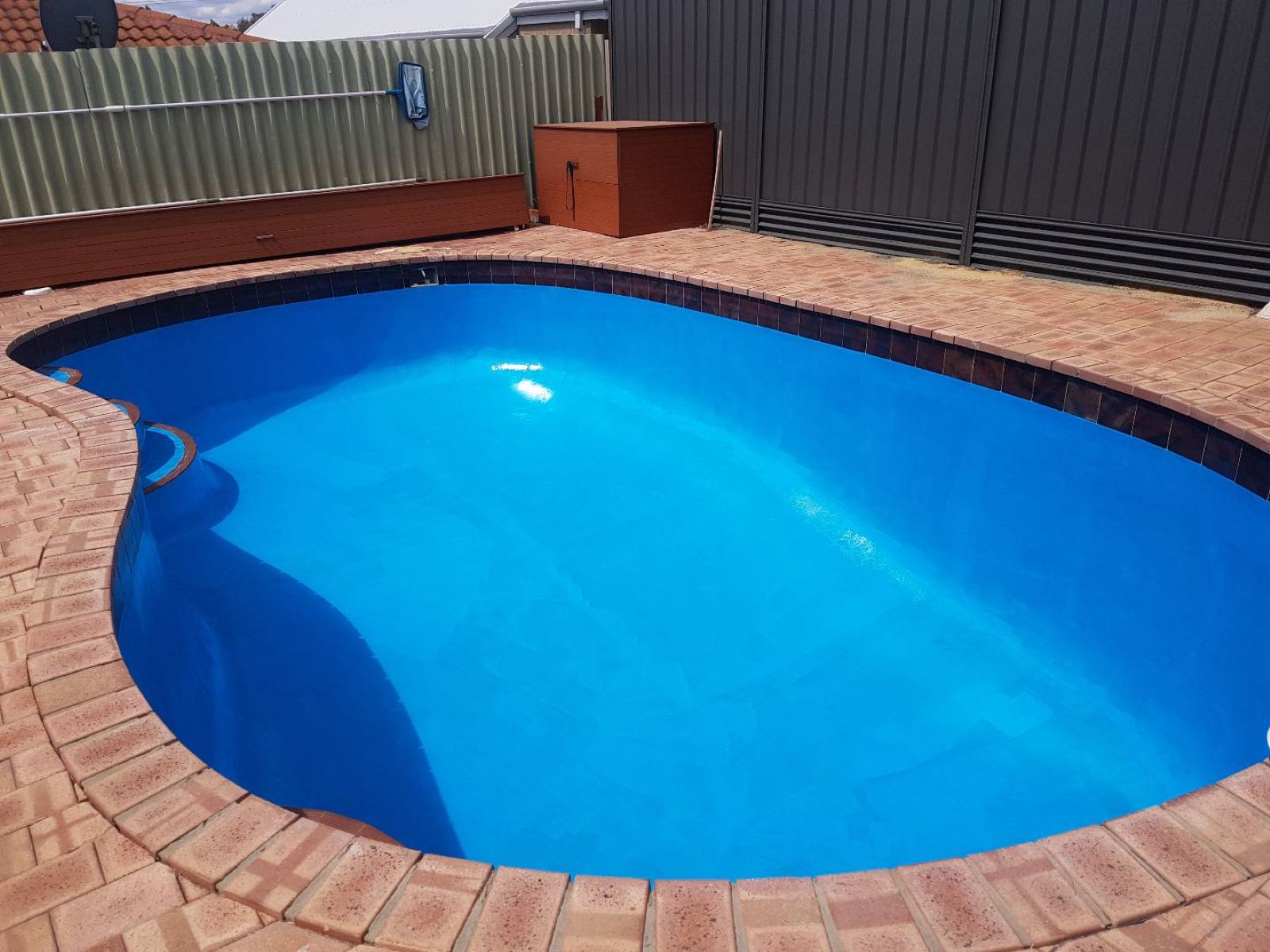Home>Home and Garden>How To Increase Pool Hardness
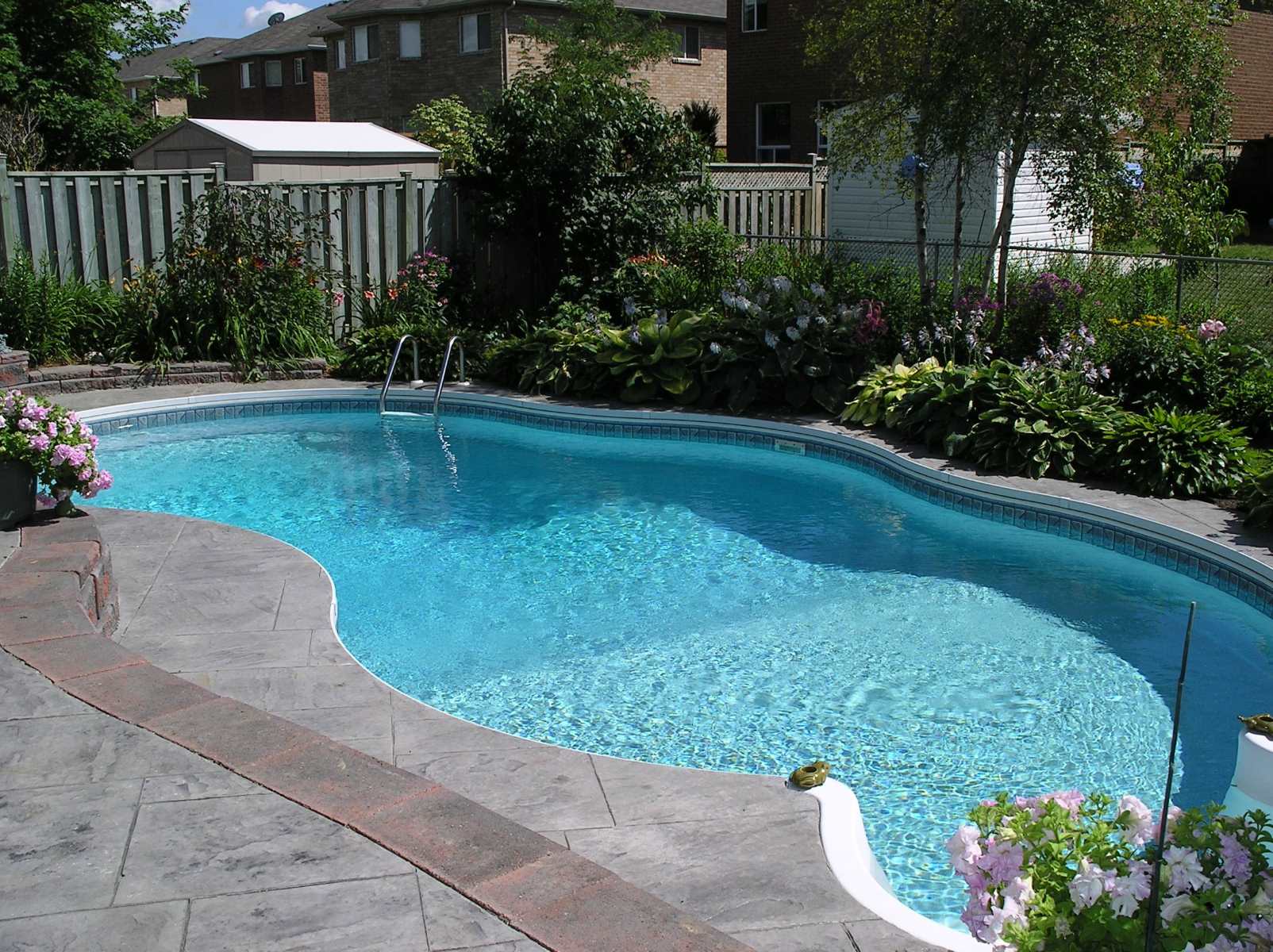

Home and Garden
How To Increase Pool Hardness
Published: February 28, 2024
Learn how to increase pool hardness with our expert tips and advice. Improve your home and garden with our simple and effective solutions.
(Many of the links in this article redirect to a specific reviewed product. Your purchase of these products through affiliate links helps to generate commission for Regretless.com, at no extra cost. Learn more)
Table of Contents
Introduction
Maintaining a well-balanced pool is essential for ensuring a safe and enjoyable swimming experience. One crucial aspect of pool maintenance is managing the water's hardness, which refers to the concentration of minerals, particularly calcium and magnesium. Proper pool hardness not only safeguards the pool's structure and equipment but also contributes to water clarity and comfort for swimmers.
In this comprehensive guide, we will delve into the intricacies of pool hardness, exploring the significance of maintaining optimal levels and providing practical insights into testing and increasing pool hardness. Whether you're a seasoned pool owner or a novice enthusiast, understanding and managing pool hardness is a fundamental aspect of pool care that can elevate your overall swimming pool experience.
So, let's dive in and unravel the nuances of pool hardness, equipping you with the knowledge and strategies to ensure that your pool water remains balanced and inviting for all who take the plunge.
Read more: How To Effectively Increase Your Size
Understanding Pool Hardness
Pool hardness, often referred to as water hardness, is a critical parameter that directly influences the overall quality of pool water. It primarily encompasses the concentration of essential minerals, particularly calcium and magnesium, dissolved in the water. These minerals play a pivotal role in maintaining the structural integrity of the pool and its equipment, as well as influencing the comfort and safety of swimmers.
The concept of pool hardness is closely linked to the term "total dissolved solids" (TDS), which represents the cumulative concentration of all dissolved substances in the water. While TDS encompasses a wide range of compounds, including salts, metals, and minerals, pool hardness specifically focuses on the presence of calcium and magnesium.
Calcium hardness specifically pertains to the concentration of calcium ions in the water. When the calcium hardness level is too low, the water becomes aggressive, leading to potential corrosion of the pool's surfaces and equipment. Conversely, excessively high calcium hardness can result in the formation of scale deposits, causing cloudy water and hindering the effectiveness of sanitizers.
Similarly, magnesium hardness, although typically present in lower concentrations than calcium, also contributes to the overall hardness of the water. While magnesium is less likely to cause scale formation compared to calcium, its presence is significant in maintaining balanced pool water.
Understanding pool hardness involves recognizing its impact on various facets of pool maintenance. Optimal hardness levels not only preserve the structural integrity of the pool but also influence water clarity and the effectiveness of other chemical treatments. By comprehending the intricacies of pool hardness, pool owners can proactively address potential issues and maintain a harmonious aquatic environment for swimmers.
In essence, pool hardness serves as a cornerstone of water quality management, encompassing the delicate balance of essential minerals to uphold the integrity and comfort of the pool. By delving into the nuances of pool hardness, pool owners can gain a deeper appreciation for the multifaceted nature of pool maintenance, ultimately fostering a safer and more enjoyable swimming experience for all.
Testing Pool Hardness
Testing pool hardness is a fundamental aspect of maintaining a well-balanced pool environment. By regularly assessing the concentration of calcium and magnesium in the water, pool owners can gain valuable insights into the overall quality of their pool water. The process of testing pool hardness typically involves utilizing specialized test kits designed to measure the levels of these essential minerals.
To initiate the testing process, pool owners can acquire pool water test kits readily available at pool supply stores or online retailers. These kits often include test strips or liquid reagents specifically formulated to assess pool hardness. Upon obtaining the test kit, pool owners can proceed with the following steps to accurately measure pool hardness:
-
Prepare the Test Kit: Before conducting the test, it is crucial to carefully read the instructions provided with the test kit. This ensures that the testing process is carried out accurately and yields reliable results.
-
Collect a Water Sample: Using a clean container, such as a plastic cup, collect a sample of pool water from a depth of around 18 inches. This ensures that the sample represents the overall water composition, providing a comprehensive assessment of pool hardness.
-
Conduct the Test: Depending on the type of test kit, pool owners can either immerse the test strip into the water sample or add specific reagents as per the kit's instructions. The test kit will then indicate the pool hardness level based on the color change of the test trip or the reaction with the added reagents.
-
Interpret the Results: After conducting the test, pool owners can compare the test strip's color or the reaction with the reagents to the provided color chart or numerical scale. This allows for the accurate determination of the pool's calcium and magnesium hardness levels.
By routinely testing pool hardness, pool owners can proactively monitor the mineral composition of their pool water, enabling them to make informed decisions regarding necessary adjustments to maintain optimal hardness levels. This proactive approach not only safeguards the pool's structural integrity but also contributes to water clarity and the effectiveness of other chemical treatments.
In essence, testing pool hardness serves as a pivotal tool in the arsenal of pool maintenance, empowering pool owners to uphold the quality and balance of their pool water. By integrating regular testing into their maintenance routine, pool owners can cultivate a harmonious aquatic environment, ensuring a safe and enjoyable swimming experience for all.
Increasing Pool Hardness
Maintaining optimal pool hardness is crucial for preserving the structural integrity of the pool and ensuring a comfortable swimming environment. When the pool water's hardness falls below the recommended levels, it becomes necessary to increase the concentration of calcium and magnesium to achieve the desired balance. Here are practical strategies for increasing pool hardness and restoring the water to its ideal state:
1. Calcium Chloride Addition
One effective method for increasing pool hardness involves the addition of calcium chloride, a readily available chemical compound. Pool owners can gradually introduce calcium chloride into the pool water, following the manufacturer's guidelines and recommended dosage. This approach helps elevate the calcium hardness level, thereby enhancing the water's overall balance and minimizing the risk of corrosion.
Read more: How To Increase Velocity In Pitching
2. Calcium Increaser Products
Specialized calcium increaser products are specifically formulated to address low calcium hardness levels in pool water. These products, available in various forms such as granules or liquid solutions, offer a convenient and targeted approach to augmenting pool hardness. By carefully following the product instructions, pool owners can effectively raise the calcium concentration, contributing to improved water quality and equipment protection.
3. Balancing Calcium and Alkalinity
Maintaining a harmonious relationship between calcium hardness and alkalinity is essential for achieving optimal pool water balance. By ensuring that the pool's alkalinity levels are within the recommended range, pool owners can support the effectiveness of calcium hardness adjustments. Balancing these two parameters fosters a stable aquatic environment, promoting water clarity and mitigating potential issues associated with low hardness levels.
4. Professional Water Treatment Services
In cases where pool hardness adjustments pose challenges or require expert intervention, seeking professional water treatment services can provide a comprehensive solution. Experienced pool maintenance professionals possess the expertise and resources to assess the pool's hardness levels accurately and implement targeted strategies to increase hardness effectively. By enlisting professional assistance, pool owners can ensure that their pool water undergoes precise adjustments, optimizing hardness levels for long-term stability.
By incorporating these strategies, pool owners can effectively increase pool hardness, thereby fortifying the water's mineral composition and promoting a balanced aquatic environment. Regular monitoring and proactive adjustments enable pool owners to uphold the integrity of their pool and enhance the overall swimming experience for all enthusiasts.
In summary, maintaining optimal pool hardness is a fundamental aspect of pool maintenance, and implementing strategic measures to increase hardness is essential for preserving water quality and safeguarding the pool's infrastructure. By leveraging these practical approaches, pool owners can proactively address low hardness levels, fostering a harmonious aquatic environment that meets the needs of swimmers and enhances the longevity of the pool.
Conclusion
In conclusion, the significance of maintaining optimal pool hardness cannot be overstated in the realm of pool maintenance. By comprehending the intricate interplay of calcium and magnesium concentrations in pool water, pool owners can proactively address potential issues and foster a harmonious aquatic environment. The journey of understanding pool hardness, from recognizing its pivotal role in preserving the pool's structure to implementing strategies for testing and adjusting hardness levels, underscores the multifaceted nature of pool care.
Regular testing of pool hardness serves as a cornerstone of proactive maintenance, enabling pool owners to gain valuable insights into the mineral composition of their pool water. By leveraging specialized test kits and diligently monitoring hardness levels, pool owners can make informed decisions to ensure that their pool water remains balanced and conducive to a safe and enjoyable swimming experience.
Moreover, the process of increasing pool hardness, whether through the addition of calcium chloride, specialized increaser products, or professional water treatment services, empowers pool owners to address low hardness levels effectively. By embracing these strategies, pool owners can fortify the water's mineral composition, thereby enhancing the overall quality of their pool water and safeguarding the pool's infrastructure.
Ultimately, the pursuit of maintaining optimal pool hardness encapsulates a commitment to preserving the integrity of the pool and elevating the swimming experience for all enthusiasts. By integrating the knowledge and strategies outlined in this guide, pool owners can embark on a journey of proactive maintenance, ensuring that their pool water remains balanced, clear, and inviting for all who seek aquatic respite.
In essence, the quest for optimal pool hardness transcends mere maintenance; it embodies a dedication to cultivating a safe, comfortable, and enjoyable aquatic environment. By embracing the principles of pool hardness management, pool owners can embark on a transformative journey, where the shimmering waters of their pool beckon swimmers into a realm of tranquility and delight.



